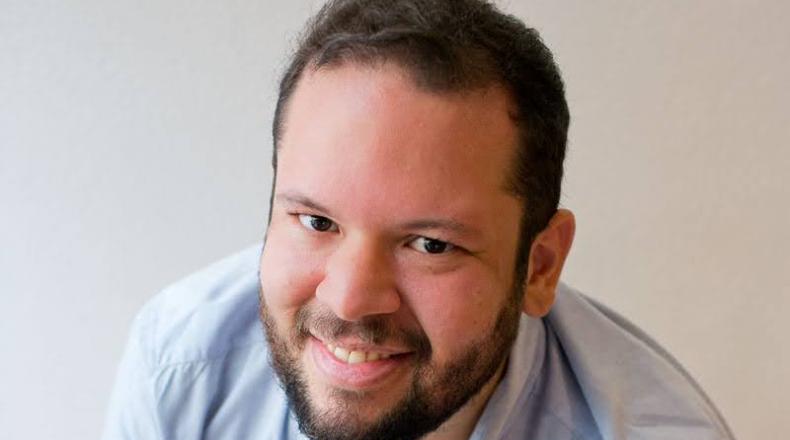Fundraising in Brazil: Challenges, Opportunities and Inspiration!

Throughout the year, various members, fundraisers and others in the nonprofit sector “take over” Mike’s Monday Message to talk about a variety of issues and provide different perspectives on the work fundraisers do. This week, we’re pleased to welcome Salomão Cunha Lima, the head of development for The Institute for Social Opportunity in Brazil, who discusses the fundraising environment in Brazil.
Every time I travel abroad and say I am Brazilian, I'm greeted with huge smiles. Yes, we are essentially welcoming, friendly, authentic, and emotional; all desirable characteristics in potential donors. Asking for a gift from this kind of person should be easy, right? However, fundraising in Brazil can be a tremendous challenge, especially for causes where the outcomes can sometimes be intangible, difficult to measure, and/or long-term, such as education, arts, or human rights.
As a development director of The Institute for Social Opportunity (IOS, Instituto da Oportunidade Social in Portuguese), most of my time is dedicated to fundraising and developing fundraising strategies. IOS is a Brazilian nonprofit that offers free professional training in technology and management to underserved young people who live in vulnerable areas in big cities in Brazil.
Through education, these students can enter the job market. After getting their first job, these students increase their family income by 54%. Our work is fostering a seismic shift in these youths' lives. So why it is so hard to fundraise from individuals for such an impactful initiative?
Brazil is the biggest country in Latin America (territory, population, and GDP) and the 11th richest economy in the world (CEOWorld Magazine). However, social inequality has historically been a big issue within our society. According to World Population Review, Brazil is the 9th most unequal country in the world, and the pandemic has raised poverty levels significantly. In addition, in the first quarter of 2022, 11.9% of the population is unemployed, according to the Brazilian Institute of Geography and Statistics.
As you can imagine, social vulnerability surrounds everyone in this country. If you are a typical Brazilian (not considering the plethora of Brazilian billionaires and millionaires), and even if you are personally not struggling from unemployment or the effect of unchecked inflation, there will be someone in your circle who is. This is why people, in general, donate directly to other people, especially those who are starving, sick, homeless, or reestablishing life after a natural catastrophe. Social needs are urgent and so close to everyone.
Another reason is that years ago, unfortunately, there were scandals related to nonprofits in the country that discouraged many people from contributing from fear of corruption and misappropriation of resources. This has created a stigma for nonprofits to have to address. However, it has also encouraged social organizations to become more transparent, ethical, and accountable. There are now more legal mechanisms aimed at preventing corruption, as well as awards and certificates that generate an environment to amplify donors’ trust and confidence in giving.
Finally, people are more likely to donate through tangible goods or services provided directly to the beneficiaries and their communities, rather than giving resources to organizations to improve their capacity to manage funds and organize future fundraising. As most Brazilian nonprofits do not have the proper funding to operate, it is difficult for them to establish a development plan – from initial research and retention of individual donors to constantly providing information regarding their activities and outcomes. The lack of specialized staff, appropriate tools and technologies, and structured fundraising plans are issues that reinforce this vicious cycle.
It is part of the Brazilian culture to help others. However, the current socioeconomic crisis, exacerbated by Covid-19, has impacted donors’ capacity to give. In addition, many donors now focus their giving on pressing emergency issues, not long-term causes, and to individuals, not organizations.
IOS focuses primarily on corporations and foundations, connecting the services we provide to communities (education to underserved youth) to their ESG (Environmental, Social, and Governance) and DEI (Diversity, Equity, and Inclusion) agendas. Funds come from companies to IOS through grants after a fairly intense process that requires us to have a well-written application, a good rapport with the potential donors, and a solid previous experience with the target audience in the field of work.
Fundraising from individuals, for education in particular, is still an enormous challenge in Brazil, especially during the current crisis. However, there is hope for the near future, as we work to ensure the Brazilian people will have their basic needs guaranteed, and that educational causes receive the essential investments to improve the quality of life for our citizens.
Being a fundraiser in Brazil is a hard task, but when I see the fruits of our labor, I know for sure I’m doing the right thing.
Salomão Cunha Lima is the head of development for The Institute for Social Opportunity (www.ios.org.br) and can be reached at salomao@ios.org.br.



